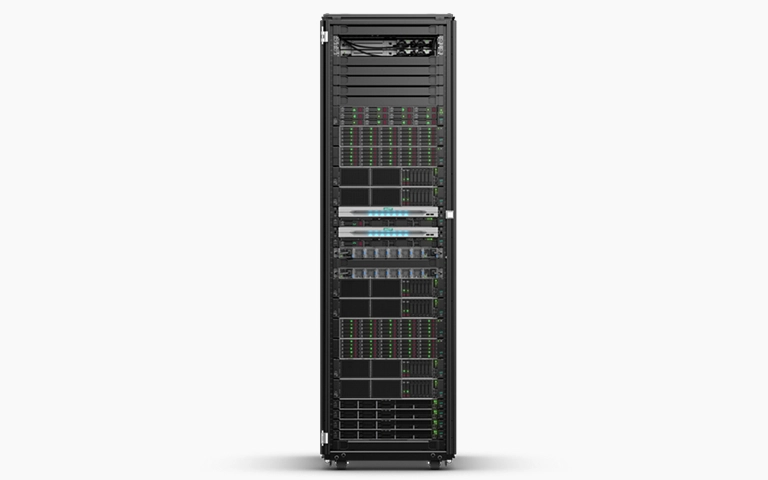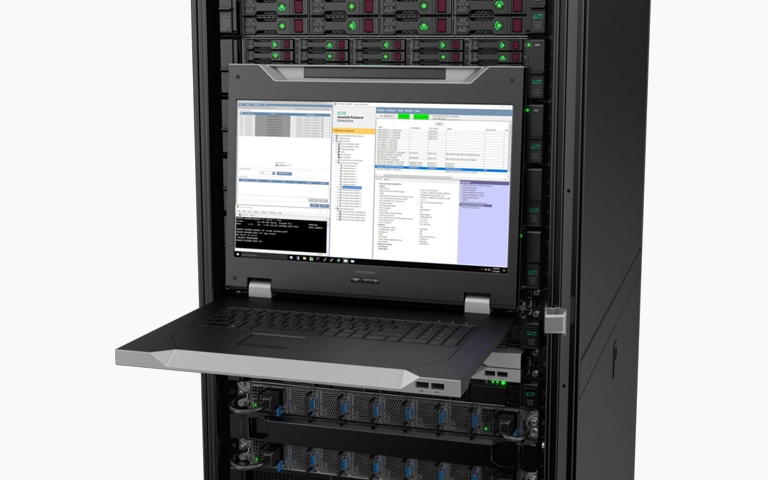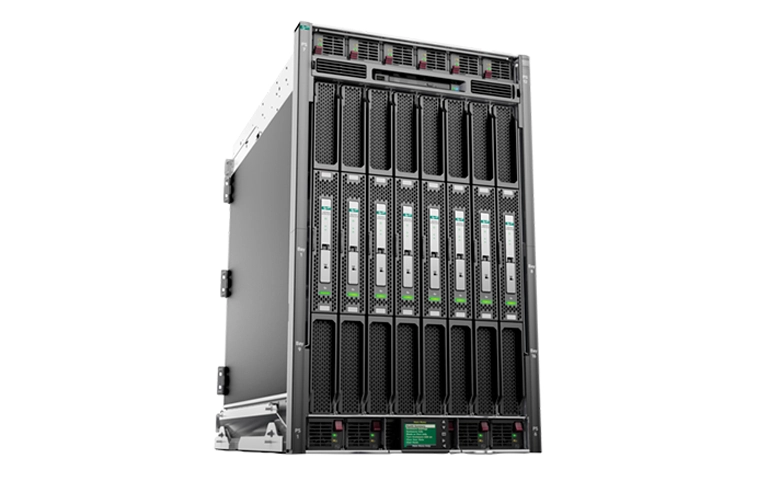The HPE NonStop NS4 X4 platform is recognized for its high availability, fault tolerance, and real-time data processing, making it a foundational system for financial institutions. When this infrastructure is compromised, the consequences are immediate and severe.
In this case, an online banking company suffered a full system shutdown following a ransomware attack on their HPE NonStop server.
Raid Recovery Services was brought in for an emergency response. This recovery case involved containment, malware removal, full system reconstruction, and future-proof security hardening.
For more information on how we handle time-critical incidents like this, please refer to our Emergency Service Options page.
The Rise of Ransomware in Financial Systems
Ransomware is a type of malicious software that encrypts an organization’s data and demands payment for its release.
In the financial sector, ransomware attacks are particularly devastating. Cybercriminals often target these institutions because of their dependency on uptime, confidential data, and urgency to restore operations.
Modern ransomware groups use advanced tactics like double extortion (where both encryption and data leaks are threatened), zero-day vulnerabilities, and phishing attacks to penetrate defenses. The HPE NonStop environment, while secure by design, can still fall victim if internal processes or endpoints are exploited.
For a detailed breakdown of how these attacks unfold and how organizations can respond effectively, refer to our comprehensive article on Ransomware Recovery.
Situation Overview: Complete Outage in a Financial System
The client’s HPE NonStop NS4 X4 server handled critical operations including transaction processing, user authentication, and internal data management.
One phishing email triggered a sophisticated ransomware attack that encrypted data and disabled core services. The entire banking platform was offline, and time was of the essence.
Step 1: Emergency Response and On-Site Deployment
Our incident response team arrived on-site within hours of the call. We began containment and investigation procedures immediately.
Actions included:
- Isolating compromised systems to prevent further spread
- Capturing forensic data and log files
- Identifying the ransomware type and origin
- Assessing data encryption scope and backup viability
This rapid response gave the client confidence while we developed a recovery strategy.
Step 2: Containment and Data Validation
We examined all backup systems and isolated non-encrypted resources. Unfortunately, the most recent backups had been compromised.
We proceeded to:
- Extract clean disk images from partially affected systems
- Validate data snapshots against checksum records
- Preserve core configurations and system metadata
- Create safe recovery staging environments
This ensured that any restoration effort would be based on verified, uncontaminated data.
Step 3: Recovery Planning for HPE NonStop Environment
HPE NonStop architecture demands a methodical and technically specific recovery approach. Our recovery team created a customized plan to bring the platform back online securely.
Key steps in the plan:
- Rebuild operating system components and kernel
- Restore transaction databases and middleware
- Reconfigure system partitions and RAID settings
- Reintegrate third-party security modules and APIs
We prioritized data and application layers based on operational criticality.
Step 4: Malware Eradication and System Restoration
Using proprietary threat removal tools, we performed a deep system cleanse and verified that no malware remained active in memory or storage.
The restoration process included:
- Deploying clean OS images and secured backups
- Validating system binaries against trusted baselines
- Restoring historical logs and transaction records
- Running integrity tests across system modules
All restored assets were tested in a secure, isolated environment before production rollout.
Step 5: System Verification and Readiness Testing
With the system operational, we conducted rigorous testing to ensure full functionality and long-term resilience.
Testing protocols involved:
- Simulated user sessions with high transaction volumes
- Load balancing and system redundancy checks
- Real-time replication testing between partitions
- Backup and failover validation
Every component passed final quality assurance, and full services were restored to users.
Step 6: Post-Recovery Security Hardening
Recovery was only one phase. Preventing future attacks was the next.
Security upgrades included:
- Real-time intrusion detection and network segmentation
- Multi-factor authentication and access control upgrades
- Internal and external threat monitoring integration
- 24/7 system log aggregation with anomaly alerts
We worked closely with the client’s IT team to improve response time and threat visibility moving forward.
Step 7: Lessons Learned and Recommendations
This recovery demonstrated several critical lessons:
- Even resilient enterprise systems like HPE NonStop are vulnerable to ransomware if human error and endpoint security are overlooked.
- Offsite and immutable backups are essential for fast and secure disaster recovery.
- A pre-defined incident response playbook can significantly reduce recovery time.
- Employee cybersecurity awareness is as crucial as technical defense mechanisms.
Conclusion: Your Partner in Enterprise Data Recovery
Ransomware attacks are increasing in complexity, frequency, and financial impact. HPE NonStop environments require specialized recovery knowledge, and our team at Raid Recovery Services is equipped with the experience and tools to act decisively.
From ransomware recovery to ongoing risk mitigation, we help enterprise clients protect their most valuable assets.
To learn how we navigate complex ransomware incidents from initial breach to full data restoration, see our detailed case analysis on Ransomware Attack Data Recovery.



